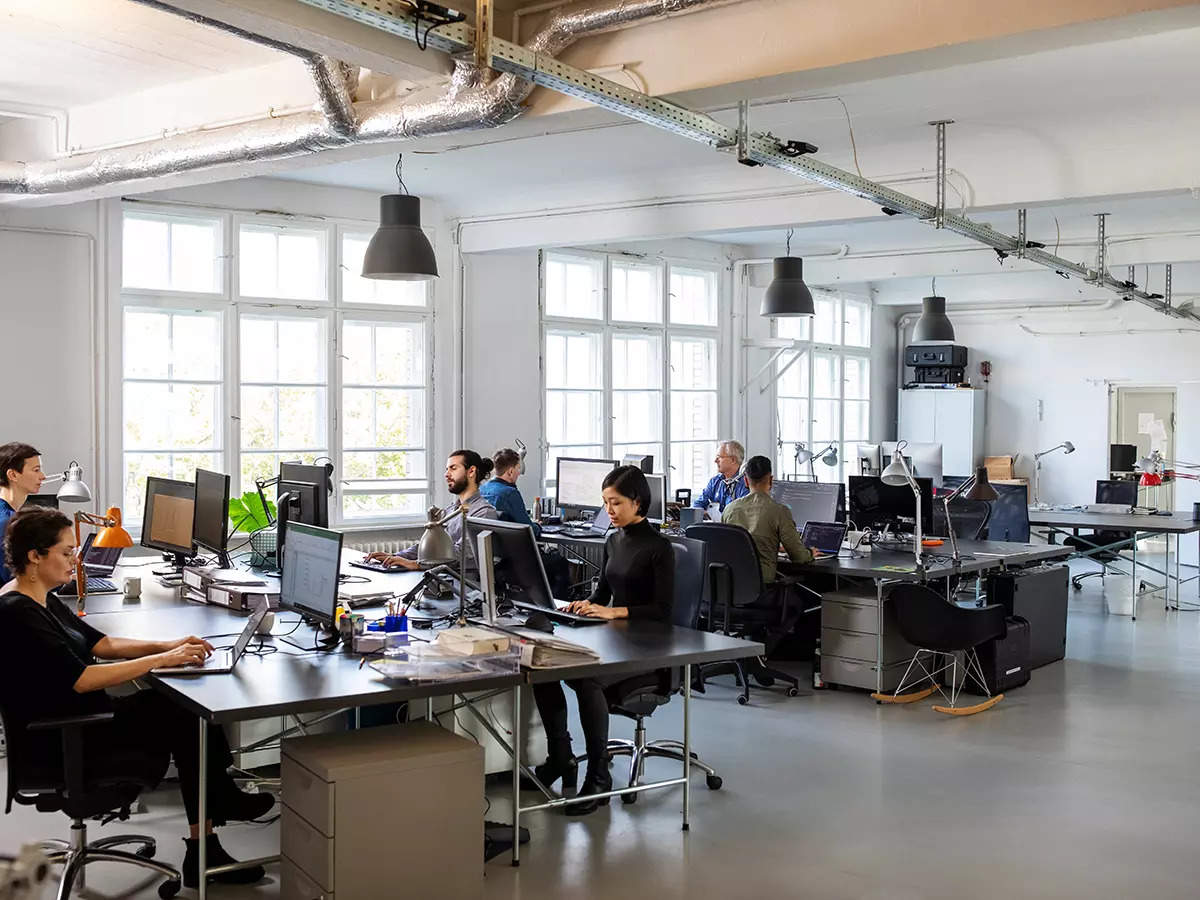The traditional office environment is experiencing a significant evolution amidst today's dynamic and rapidly evolving business landscape.Offices are no longer static environments with fixed layouts and conventional furniture. Instead, companies are embracing innovative approaches to workspace design that prioritize flexibility, efficiency, and collaboration. At the heart of this evolution lies modular office furniture—a versatile solution that is reshaping how offices function and adapt to dynamic business needs. Let's delve into the versatility of modular office furniture and explore how it is revolutionizing modern workplaces.
Adapting to Changing Needs
A key highlight of modular office furniture is its ability to seamlessly adjust to varying requirements and environments.Unlike traditional furniture, which is often fixed in place and limited in configuration options, modular pieces are designed with interchangeable components that can be easily reconfigured, rearranged, or expanded upon as needed. This flexibility allows companies to quickly adjust their office layouts in response to organizational changes, team expansions, or evolving project requirements.
For example, modular desks, tables, and storage units can be effortlessly moved and rearranged to create collaborative workspaces, private offices, or flexible meeting areas. This adaptability not only optimizes the use of space but also enhances productivity by providing employees with environments that support their specific tasks and work styles.
Facilitating Collaboration and Interaction
Collaboration is a cornerstone of modern business success, and modular office furniture is designed to foster interaction among employees. Open-plan layouts with modular workstations encourage teamwork and idea-sharing by removing physical barriers and promoting a sense of accessibility. Teams can easily come together for brainstorming sessions, project meetings, or informal discussions in a collaborative setting that encourages creativity and innovation.
Moreover, modular furniture often integrates technology solutions such as built-in power outlets, USB ports, and connectivity options, facilitating seamless communication and collaboration. This connectivity is crucial in today's interconnected world where teams may span across different locations or operate on flexible schedules.
Supporting Agile Work Practices
The rise of agile work practices, characterized by flexibility, adaptability, and rapid decision-making, has further underscored the importance of modular office furniture. Agile teams require work environments that can swiftly adjust to changing project dynamics and team configurations. Modular furniture meets this need by allowing spaces to be easily reconfigured into agile workstations, project pods, or collaborative hubs based on current requirements.
For instance, a marketing team may need a dedicated space for a campaign launch that can quickly transform into a flexible workspace for ongoing strategy meetings or client presentations. The versatility of modular furniture enables businesses to maintain agility and responsiveness in their operations, ultimately driving efficiency and innovation.
Promoting Wellness and Comfort
Employee well-being is another critical consideration in modern office design, and modular furniture contributes to creating healthier and more comfortable work environments. Modular desks and chairs are designed with ergonomics in mind, promoting proper posture and minimizing the potential for physical strain or discomfort. Adjustable height desks, for example, allow employees to alternate between sitting and standing positions throughout the day, promoting movement and improving overall comfort.
Furthermore, modular designs often incorporate elements of biophilic design, such as natural materials and greenery, which have been shown to reduce stress levels, increase productivity, and enhance mood. By integrating these elements into the workspace, companies can create environments that prioritize both physical and mental well-being, contributing to a more positive and productive work experience for employees.
Embracing Sustainability
Sustainability has become a significant focus in modern business practices, and modular office furniture aligns with these principles by offering eco-friendly solutions. Many modular pieces are constructed from sustainable materials and designed for durability, longevity, and recyclability. This approach reduces the environmental impact of office spaces and supports corporate sustainability goals.
Additionally, modular furniture supports waste reduction efforts through its modular design, which allows components to be reused, repurposed, or recycled at the end of their lifecycle. By adopting sustainable practices in office furniture choices, companies not only demonstrate their commitment to environmental stewardship but also enhance their reputation as responsible corporate citizens.
Conclusion
In conclusion, modular office furniture represents a transformative approach to office design that emphasizes adaptability, collaboration, employee well-being, and sustainability. By embracing the versatility of modular solutions, companies can create dynamic work environments that evolve with their business needs and support the diverse requirements of their workforce. Whether facilitating collaboration, supporting agile work practices, promoting wellness, or minimizing environmental impact, modular office furniture proves to be a versatile and essential component of modern workplace strategies.
As businesses continue to innovate and adapt to new challenges and opportunities, the role of modular office furniture is likely to expand. By leveraging its flexibility and functionality, companies can not only optimize their physical workspaces but also foster a culture of innovation, productivity, and employee satisfaction. Ultimately, modular office furniture empowers organizations to transform their offices into dynamic hubs of creativity, collaboration, and success in an increasingly competitive global marketplace.





Comments